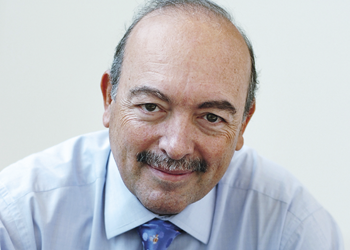 July 12, 2011 – MasterCard’s long-running legal challenge against the European Commission’s 2007 decision on the company’s cross-border consumer interchange fees has been aired at the EU General Law Cout in Luxembourg, with the card scheme declaring that „the future direction of European payments is stake”.
July 12, 2011 – MasterCard’s long-running legal challenge against the European Commission’s 2007 decision on the company’s cross-border consumer interchange fees has been aired at the EU General Law Cout in Luxembourg, with the card scheme declaring that „the future direction of European payments is stake”.
MasterCard Europe applied to the EU law courts in March 2008 to annul the European Commission’s decision on its cross-border consumer interchange fees. The December 2007 ruling from Brussels required the company, among other things, to repeal its intra-EEA fallback interchange fees.
 “What is at stake in this case is the future direction of European payments -whether or not consumers and businesses will have more or fewer choices in how they want to pay, and whether payment methods in the EU will remain world class,” said MasterCard Europe president Javier Perez (photo). „We’re asking: Why is the Commission trying to fix what isn’t broken? The market is moving fast and in ways that no one – including regulators – can easily predict. We’re concerned that government intervention threatens the continued development of payments in the EU.”
“What is at stake in this case is the future direction of European payments -whether or not consumers and businesses will have more or fewer choices in how they want to pay, and whether payment methods in the EU will remain world class,” said MasterCard Europe president Javier Perez (photo). „We’re asking: Why is the Commission trying to fix what isn’t broken? The market is moving fast and in ways that no one – including regulators – can easily predict. We’re concerned that government intervention threatens the continued development of payments in the EU.”
Perez pointed out that since the Commission first began examining interchange fees in 2000, a lot has changed in the payments industry. Increased competition and innovations such as contactless, mobile, and e-commerce payments are being driven by retailers, banks, telecommunications companies, technology companies, and other new players.
„We welcome these new developments and are competing harder than ever before in this rapidly changing environment,” says Perez. „We’re pleased that we had our day in court and we look forward to the end of this dispute so that we can focus all of our attention on creating an advanced, well functioning internal market for payments in Europe and to realising the full potential of Sepa for consumers and businesses throughout the region.”
Any decision in the case can be appealed at the region’s top tribunal, the EU Court of Justice in Luxembourg.
Alongside the potential threat from new entrants, MasterCard and Visa’s duopoly on cross-border debit card payments in Europe is also under threat, with the European Central Bank pushing for the creation of a third bank-backed scheme to increase competition in the region.
MasterCard & European Commission
On March 3, 2008 MasterCard Europe applied to the European General Court in Luxembourg to annul the European Commission’s decision on MasterCard Europe’s cross-border consumer interchange fees. The December 19, 2007 decision required the company, among other things, to repeal its intra-EEA fallback interchange fees.
On April 1, 2009 the company announced it had reached an interim arrangement with the European Commission regarding its cross border consumer interchange fees. While MasterCard was pleased that the Commission recognised the legitimacy of interchange fees in open four-party payment systems, the company considers the levels of interchange too low and therefore continued the appeal against the Commission decision, and believes it has strong arguments that the decision should be reversed.
In its appeal, MasterCard’s concerns with the decision focus on:
Banking 4.0 – „how was the experience for you”
„To be honest I think that Sinaia, your conference, is much better then Davos.”
Many more interesting quotes in the video below: